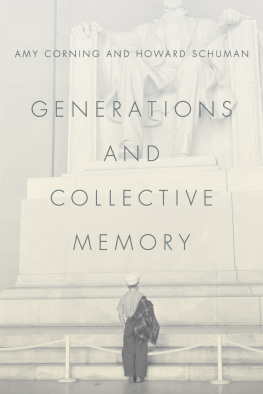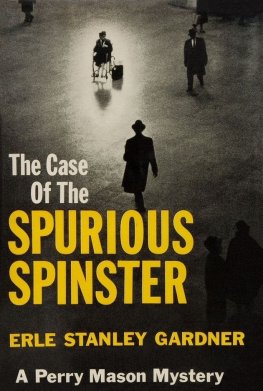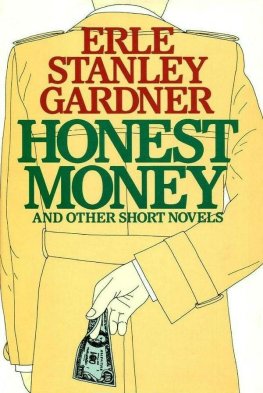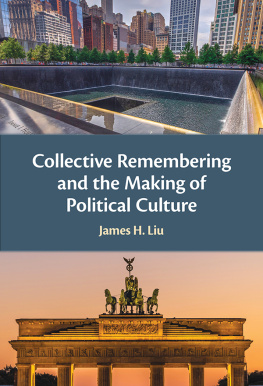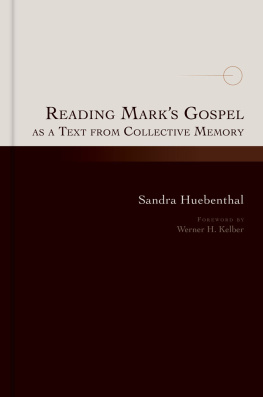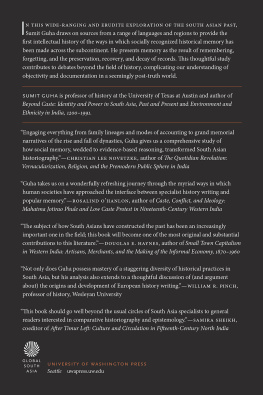Generations and Collective Memory
Generations and Collective Memory
AMY CORNING AND HOWARD SCHUMAN
The University of Chicago Press
Chicago and London
AMY CORNING is research investigator at the Institute for Social Research at the University of Michigan.
HOWARD SCHUMAN is professor of sociology and research scientist emeritus at the University of Michigan.
The University of Chicago Press, Chicago 60637
The University of Chicago Press, Ltd., London
2015 by The University of Chicago
All rights reserved. Published 2015.
Printed in the United States of America
24 23 22 21 20 19 18 17 16 15 1 2 3 4 5
ISBN-13: 978-0-226-28252-7 (cloth)
ISBN-13: 978-0-226-28266-4 (paper)
ISBN-13: 978-0-226-28283-1 (e-book)
DOI: 10.7208/chicago/9780226282831.001.0001
Library of Congress Cataloging-in-Publication Data
Corning, Amy, author.
Generations and collective memory /Amy Corning and Howard Schuman.
pages cm
Includes bibliographical references and index.
ISBN 978-0-226-28252-7 (cloth : alk. paper)ISBN 978-0-226-28266-4 (pbk. : alk. paper)ISBN 978-0-226-28283-1 (e-book) 1. Collective memory. 2. Autobiographical memory. 3. MemorySociological aspects. 4. MemorySocial aspectsUnited States. 5. United StatesHistoryPublic opinion. I. Schuman, Howard, author. II. Title.
BF378.S65C68 2015
153.1'3dc23
2014046112
This paper meets the requirements of ANSI/NISO Z39.481992 (Permanence of Paper).
Time present and time past
Are both perhaps present in time future,
And time future contained in time past.
T. S. Eliot, Four Quartets
Contents
The term collective memory has many meanings, and that variation helps account for its wide appeal, not only across the social sciences but in much other writing as well. In the most general sense, the term refers to how groups, small or large, recall and think about the past. In our introduction, we consider the range of ways in which the collective memory concept has been employed and connect it to the equally important concept of generation, which includes the idea of location in time. Throughout the rest of the book, we develop and examine the varied ideas and research that grew out of our thinking about generations and collective memory. In part, the book also exemplifies many of the different ways in which social scientists can gather evidence to explore and test ideas.
Our names are listed alphabetically on the title page in order to indicate equal authorship. Schuman began the research in the early 1980s, and Corning joined it in 1998. We have collaborated closely on this book and share responsibility for the ideas developed, the evidence presented, and the conclusions reached.
Our book draws on previous articles, but in no case do we simply reprint an earlier publication. The book is newly conceptualized and integrated, and it incorporates recently collected as well as previously published and unpublished evidence. In some instances, an earlier publication included more substantive and technical detail than was appropriate for the present book; for example, the findings on Lithuania, Israel, Germany, and Japan are reported in separate articles more fully than we are able to do here. In these and other cases, we include citations of the original articles so that interested readers can refer to them.
, and we have drawn on his advice in other chapters as well. Beyond his specific contributions to our book, however, Barrys ideas and range of empirical research have been a stimulus to our own work over many years. We dedicate this book to Barry, and also to our families (Jo, Marc, Elisabeth, and David Schuman; and Ben, Maxie, and Alex Broening).
We also wish to acknowledge a number of other individuals who made important contributions to our research and thinking: Willard Rodgers, Jacqueline Scott, Cheryl Rieger, Vladas Gaidys, Hannah dArcy, Brbel Knuper, Hiroko Akiyama, Amiram Vinokur, Robert Belli, Vered Vinitzky-Seroussi, Tom W. Smith, Eleanor Singer, and Katherine Bischoping. Marc Schuman and Ben Broening have provided essential technical support from the beginning through todaywe could not have completed the book without their help. We are grateful as well to Douglas Mitchell, executive editor, and Mary Corrado, manuscript editor, at the University of Chicago Press.
Our research received financial support over the years from the National Science Foundation (SES-8410078; SES-8411371; SES-0853381; SES-0001844; SES-0206472) and the National Institute on Aging (1 RO1 AG08951). The initial NSF grant was in response to a proposal by Philip Converse and Howard Schuman; although Converse could not continue with the research because of his other responsibilities, his 1987 article on the impact of the Vietnam War on public opinion reported certain of the initial results in relation to his now-classic ideas about elite and mass differences in beliefs and attitudes.
Thanks to the generosity of the Survey Research Center (SRC) at the University of Michigans Institute for Social Research (ISR), we were able to gather a set of supplementary data via the Surveys of Consumers, conducted by SRC, and in many other ways we benefited greatly from our location in SRC and ISR, including highly efficient administrative help by Nancy Tracy and overall advice and support, earlier from Laurie Staples and more recently from Catherine Thibault. We are also indebted to Richard Curtin and Rebecca McBee of the Surveys of Consumers, who made it possible for us to collect a further set of supplementary data. In addition, their assistance with our many data collection efforts on the SRC monthly survey has been very important.
Many people at other institutions provided significant support to our research. We are especially indebted to Ronald C. Kessler, principal investigator of the U.S. National Comorbidity Survey, for allowing us to include questions at the end of his 20012003 survey interview. We are grateful to Mark Handelman and the New York Association for New Americans (NYANA) for making their refugee resettlement records available to us for drawing a sample. We also benefited importantly from the opportunity to collect data through Time-Sharing Experiments for the Social Sciences (TESS) twice in 2011 and again in 2014 (NSF Grants 0818839 and 1227179), Jamie Druckman, Jeremy Freese, and Penny Visser, principal investigators. Vladas Gaidys of Vilmorus (earlier the Public Opinion Research Center at the Lithuanian Academy of Sciences) included our questions in three surveys in Lithuania, and M. Kent Jennings provided for our use the data from China he had previously collected. Without the help from these many sources, we would not have the extensive evidence that we report in the following pages. A major strength of this book is the extensive replicationboth literal and construct replicationthat we carried out, and this was possible only because of the support acknowledged here.
Archived Data
For the benefit of other researchers, we plan to archive the survey data used in this book at the Interuniversity Consortium for Political and Social Research (ICPSR). A keyword search on the term collective memory or the names Howard Schuman or Amy Corning will identify datasets used here.
The Meanings of Collective Memory and Generation
Generations and collective memory are the main themes of our book, and we begin with thoughts about each, though more about collective memory because the term is more recent and elusive in meaning. The concept of generations may seem more familiar, though we will see that it also is complex, embodying two quite different meanings.

